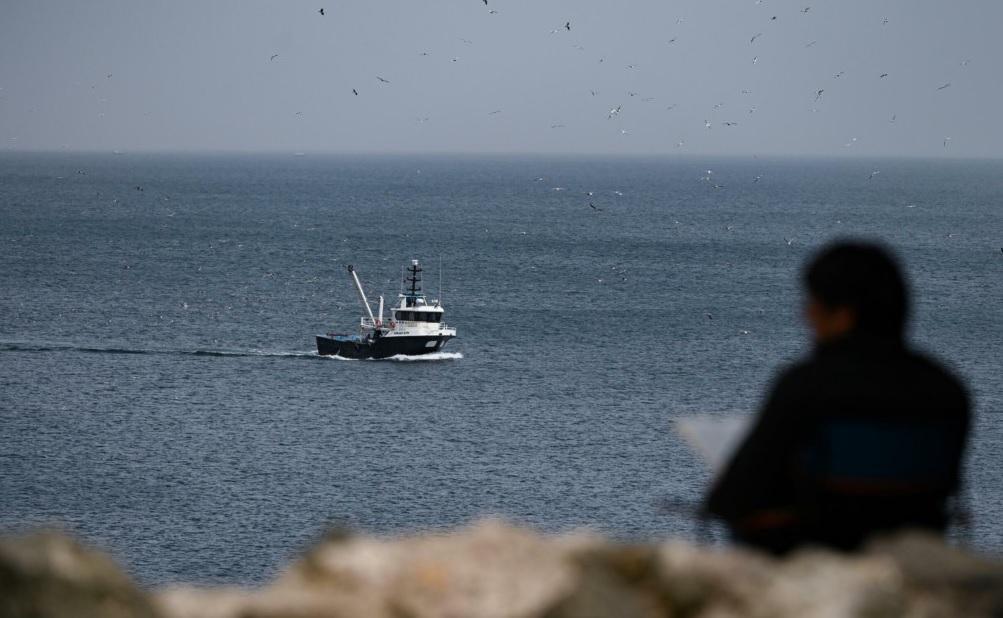
Turkish fisherman Şahin Afsüt fears the worst: Hitting a mine and “disappearing underwater in the blink of an eye.”
Like many fishermen in Rumelifeneri, a village set on the rocks of the Bosphorus in northern Istanbul, Afsüt and his team remain in port since the discovery of a drifting mine last month in the Black Sea.
Fears grew after a second mine was found on March 28, which could have come from Ukraine, where Russia launched an invasion in February.
A third stray mine was found on April 6 in the Black Sea off the town of Kefken in northwestern Turkey.
Turkish authorities fear an accident and believe the mines became unmoored from the Ukrainian coast during storms.
“If you hit [a mine], you’re finished,” says Afsüt, wearing a grey cap in front of his small trawler from which he usually catches whiting, red mullet and anchovies.
He did not see the first mine two kilometers offshore, first discovered by a local fisherman, but several others described the scene.
“It was large, like half a barrel. We watched from above there, the [special Turkish navy] units neutralized it,” says 55-year-old Ahmet Tarlacı, who has been a fisherman for 43 years.
The Turkish navy warned five days before the first was found on March 26 of the risk of mines coming from Ukrainian waters.
The Russian Defense Ministry last week said 420 mines, 370 mines of them in the Black Sea, were placed by Ukraine to protect its coast but around 10 had broken off.
Kiev dismissed Moscow’s version of events, accusing the Russian navy of letting the mines wander to discredit Ukraine.
At Rumelifeneri port, where around 100 boats, from small fishing boats to 40-meter trawler boats were waiting, “90 percent of people that we know have stopped” going out to sea, says fisherman Şefki Deniz, 42.
“Across from us, there is Ukraine, Russia: If the wind blows violently from the north, it’s only a question of time” before the mines arrive in Turkey’s waters, fears fishing captain Şaban Uçar, 32.
The 30-40 meter fishing boats “have radars, sonars... but the 9-10 meter boats only have binoculars,” he says from a building overlooking the port.
Uçar was not born at the time, but the memory is still vivid in the village of two accidents in the 1980s caused by mines dating back to World War II.
“There was one that exploded at the port in 1983, five people from the village died. And in 1989, it happened at sea while lifting a net, the mine exploded, and so did the boat: Four people died. We never found their bodies,” says Deniz, one of the veterans at the port.
The fisherman now fears a mine will be able to make its way to the Bosphorus Strait used by 38,500 ships last year.